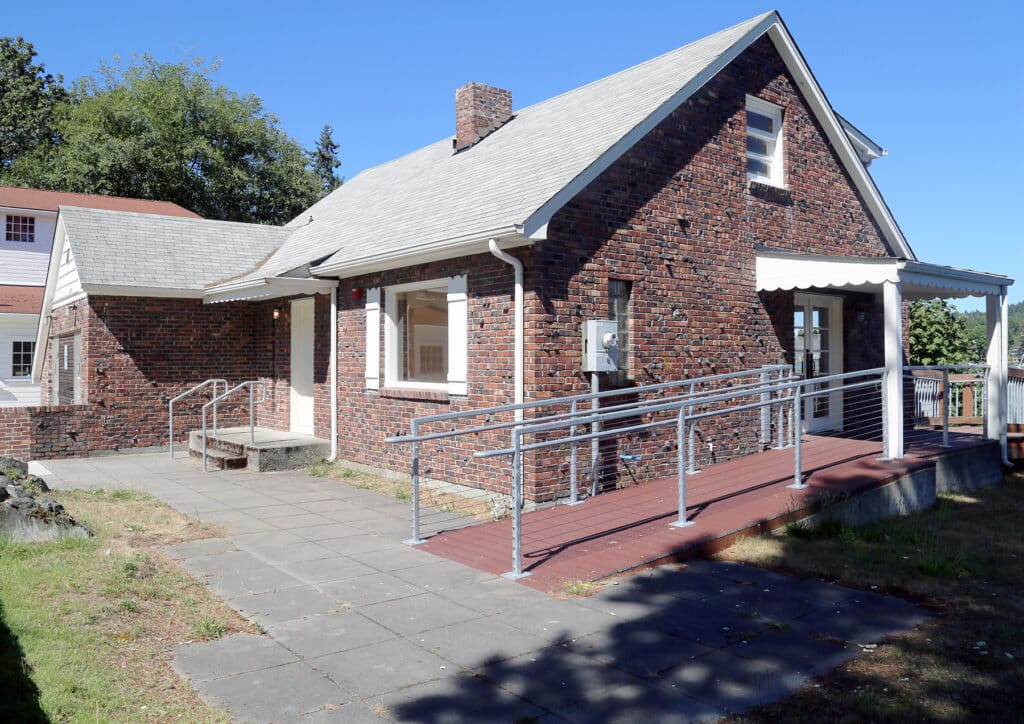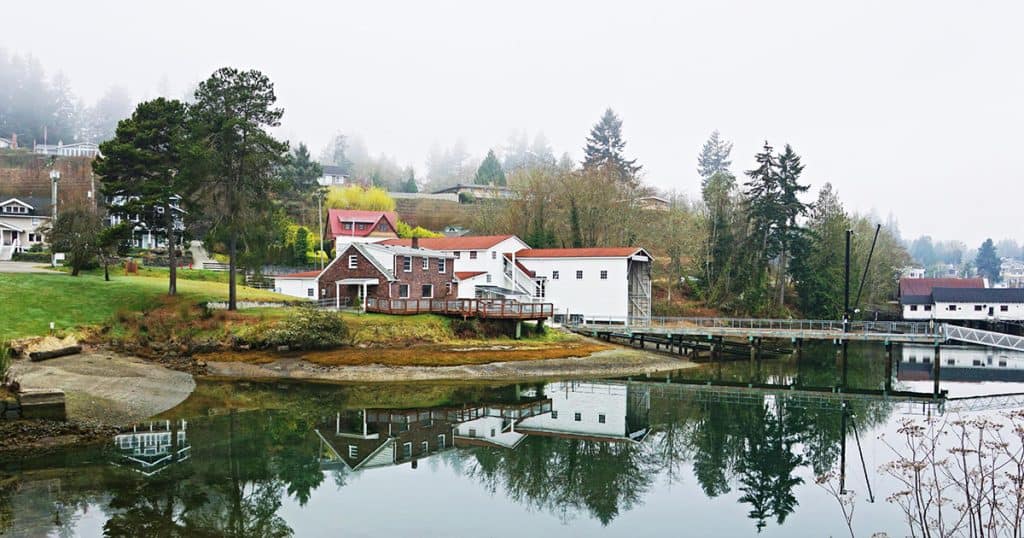Community Government
Eddon Boatyard house will soon be open to public again
The brick house at Eddon Boatyard is one step closer to being open to the public.
The Gig Harbor City Council unanimously approved an agreement with Gig Harbor BoatShop for management of the site at a special meeting on Aug. 18.
The city bought the house and boatyard on Harborview Drive in 2004. They are part of the city’s Eddon Boat Park.
The BoatShop uses the boatyard for public classes and workshops. Most recently, it has provided space for a team of volunteers to build a batana, a traditional Croatian fishing boat.

The house at Eddon Boatyard Park. Vince Dice
The city has been restoring the historic house for the past several years. City officials anticipate the building will be available for use this month.
The agreement outlines use of the Boatyard House and establishes a fee structure for people who want to rent the main floor of the house.
As is the case with the boatyard, the BoatShop will manage the house. The main floor of the building will be available for community use at least 180 days of the year. The BoatShop will use the remaining days for free public programming.
Cost to rent the main floor will be $50 per hour, with a two-hour minimum.
The BoatShop hopes to have a ribbon-cutting for the house soon, according to the Boatshop’s Community Development Director Nicole Jones-Vogel. The first public event will be the christening of the batana boat on Sept. 3.

Eddon Boatyard. Photo courtesy of Bill Talich
Council reviews report on short-term rental regulations
The council also reviewed a staff report on short-term rental regulations. City code currently does not specifically define or regulate short-term rentals, Senior Planner Carl De Simas noted.
The city council implemented a moratorium on short-term rental applications last fall, then renewed it in March. A survey found as many as 60 short-term rentals operating in Gig Harbor, and only two of them are properly permitted.
City staff has been working with the Planning Commission for nearly a year to craft a “fair and balanced regulation structure with an easy-to-understand and easy-to-administer permit process,” De Simas said.
One goal was to find a way to allow short-term rentals, while limiting the overall number of them. A second goal was to protect neighborhoods from being inundated with short-term rentals.
A third goal was to make sure that an adequate number of long-term rentals remains available, and to discourage vacation rental corporations from buying homes for investment.
The staff report proposes that the city create three “lodging levels” to cover various short-term rental situations:
Short-term Rental (STR) 1: A dwelling that is the primary residence of the short-term rental operator and is rented for fewer than 30 consecutive nights.
STR 2: A dwelling or accessory apartment that may not be the primary residence of the short-term rental operator and is rented for fewer than 30 consecutive nights.
STR3: A live-aboard vessel (typically a yacht or other watercraft) which is used as a primary residence and rented for fewer than 30 consecutive nights.
Each level would require different permits.
Staff will present an ordinance covering short-term rentals at the Sept. 12 city council meeting.
